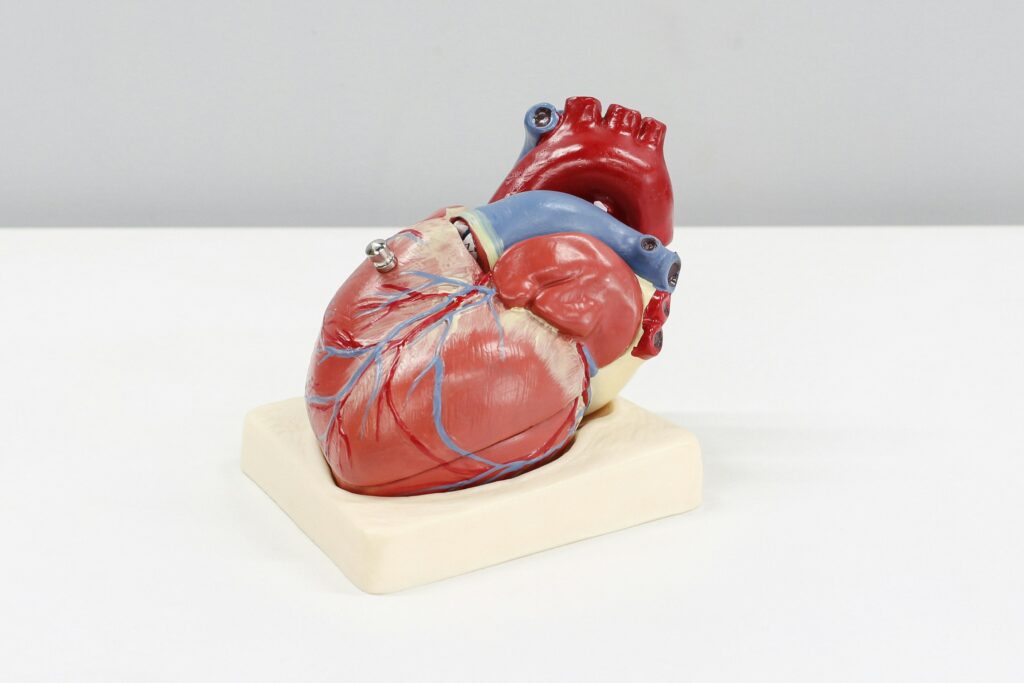Today, let’s talk about a topic that should be near and dear to you – your heart. Specifically, heart disease.
Did you know that cardiovascular disease is the leading cause of death for women, claiming more lives than all cancers combined? Or that one in three women who have heart disease will experience sudden death as their first symptom? Yes, it’s that serious.
If this sounds a little alarming, don’t worry—we’ve got you covered.
Recently, Gerie DiPiano, CEO of FemmePharma, sat down with Dr. Katherine Sherif, Professor of Medicine at Thomas Jefferson University, and women’s health expert, to explore this topic and discuss what we can do to ensure optimal heart health.
Why cardiovascular health matters
The statistics are sobering. One woman dies every 80 seconds from heart disease in the U.S., and women who survive a heart attack are at a higher risk of dying within the first year compared to men. But let’s not let fear take the wheel—understanding our risks and recognizing symptoms can empower us to take action.
Cardiovascular disease symptoms in women
Unlike men, women may experience less obvious symptoms. In addition to chest pain, women report:
- Shortness of breath
- Fatigue (sometimes weeks before a heart attack)
- Nausea and indigestion
- Pain in the jaw, neck, or back
- Lightheadedness
These subtle signs often lead to misdiagnosis. For example, chest pain might be dismissed as acid reflux, stress, or even a panic attack. Thus, knowing your body and advocating for yourself is critical.
Risk factors for cardiovascular disease in women
We know the usual culprits: high cholesterol, high blood pressure, and smoking. But there are others less commonly discussed:
- Gestational diabetes and preeclampsia (high blood pressure during pregnancy)
- Polycystic ovary syndrome (PCOS)
- Early menopause or menopause caused by surgery
- Autoimmune conditions like lupus and rheumatoid arthritis
- Sleep apnea
These factors aren’t always considered in routine care, which is why you need to bring them up with your doctor.
Why women face worse outcomes
Dr. Sherif highlighted some harsh truths:
- Women often don’t receive the same aggressive treatments as men.
- Diagnostic tests, like EKGs, can be less accurate for women.
- Racial and sex disparities – such as unique symptoms and how the disease presents – can delay life-saving interventions.
Women also have different heart attack types, like “minoca” (myocardial infarction with no coronary artery obstruction), which is often missed because it doesn’t appear on traditional tests. Advocacy is key here—don’t be afraid to push for further evaluation if something feels off.
How to prevent heart disease
The good news is cardiovascular disease is preventable–we have more control than we think! Just remember your ABCDEFs of prevention:
A – A1c and blood pressure: Regular screenings can help you stay ahead of diabetes and hypertension.
B – Better diet choices: Load up on fruits, veggies, and whole grains while cutting back on processed foods.
C – Cholesterol: Manage your LDL (bad cholesterol) and monitor triglycerides, which are especially problematic for women.
D – Don’t ignore exercise: Aim for 30 minutes of activity most days.
E – Emotional support: Build a strong community to tackle stress and loneliness.
F – Fix sleep apnea: Treat it, even if it means wearing that CPAP mask.
Final tips to prevent cardiovascular disease
Dr. Sherif left us with three golden rules:
- Know your numbers (blood pressure, cholesterol, etc.) and track changes.
- Make meaningful dietary changes—start small and stay consistent.
- Stay active, even if it’s just a daily walk.
Heart health isn’t about perfection—it’s about small, consistent steps. As we navigate menopause and beyond, let’s be our own advocates and empower each other. Together, we can change the narrative for women’s cardiovascular health.
To dive deeper into this topic, listen to the full episode on our Love Mia Vita podcast.
